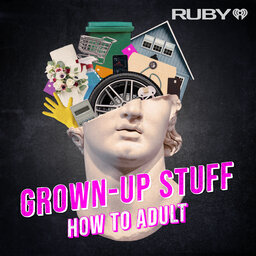Higher & Continuing Education Options for Grown-Ups
In our previous episode, we learned all about how to pay and save for college with a 529 savings plan. But a bachelor’s degree program isn’t the only path to take when it comes to higher education.
In this special episode of “Grown-Up Stuff: How to Adult,” sponsored by EdVest of Wisconsin and the Michigan Education Savings Program, Molly and Matt will explore all of the options people have after graduating high school – and beyond a bachelor’s degree.
With the help of return guests Robin Lott and Jackie James, we’re discussing the value of all types of degrees and certificates with the goal of helping you determine your own personal path. The best part? You can use a 529 savings account to pay for any of them!
Sources Cited:
 Grown-Up Stuff: How to Adult
Grown-Up Stuff: How to Adult


